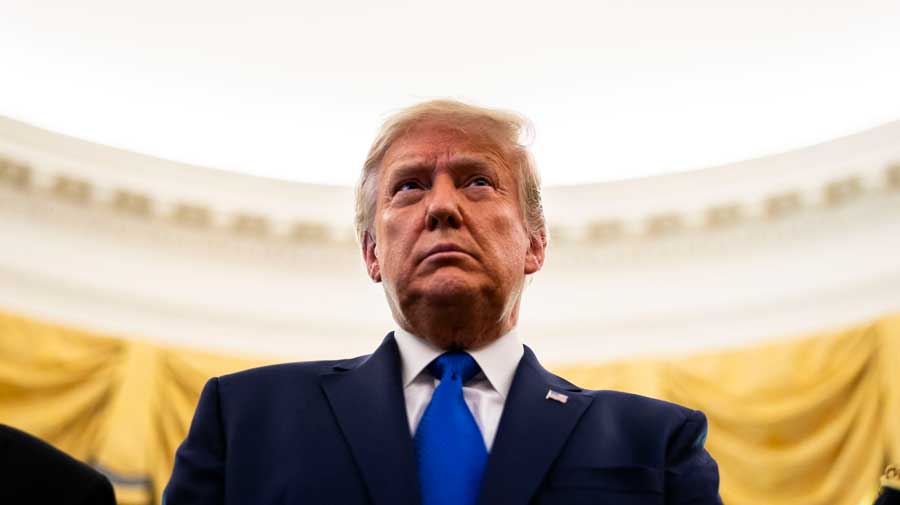Attack. Attack. Attack.
Delay. Delay. Delay.
Those two tactics have been at the centre of Donald J. Trump’s favoured strategy in court cases for much of his adult life, and will likely be the former President’s approach to fighting the criminal charges now levelled against him if he sticks to his well-worn legal playbook. In fact, his attacks against both the prosecutor and the judge in the case have already begun.
Over more than four decades, Trump has sued and been sued in civil court again and again. In recent years, he has faced federal criminal investigations, congressional inquiries and two impeachments. He has neither a law degree nor formal legal training, but over the course of that long history, he has become notorious in legal circles for thinking he knows better than the lawyers he hires — and then, very often, fires — and frequently is slow to pay if he does at all.
The former President now faces an indictment stemming from a hush-money payment made to a porn star in the final days of the 2016 presidential campaign. Trump, who has steadfastly contended he committed no crime and almost certainly will decline any plea deal, will fight the case in State Supreme Court in Manhattan. The battle there will play out in front of the same judge who last year presided over the tax fraud trial of Trump’s family real estate company — a trial that ended in a conviction on 17 felonies.
The details of Trump’s defence strategy are still unclear because the specific charges in the indictment against him will stay under seal until his arraignment Tuesday.
But two things seem certain: The defence approach will include aggressively attacking the credibility of Michael D. Cohen, Trump’s onetime fixer and lawyer who is expected to be the prosecution’s central witness; and, if the indictment relies on a legal theory that has never been evaluated by a judge, the defence will also zero in and zealously challenge it.
Cohen, who broke with Trump in 2018 and testified before the grand jury that indicted him, is expected to tell a trial jury that the former President directed him to pay off the porn star, Stormy Daniels, and that Trump reimbursed him and helped to cover up the entire hush-money affair.
Cohen was federally prosecuted for the hush-money payment and pleaded guilty in 2018 to campaign finance violations and other crimes.
His guilty plea to those crimes, which include lying to Congress, and his years of public statements will make him a sure target on cross-examination for Trump’s lawyers.
The judge, Juan M. Merchan, who in more than 16 years on the bench has earned a reputation for being thoughtful and measured, keeps to a tight schedule in court and seeks to maintain a certain level of decorum there. He likely will have little patience for the former President’s attack-and-delay strategy.
Justice Merchan did not have to wait long to see Trump’s tactics in full flower. On Friday morning, less than 24 hours after the former President had been indicted, he lashed out at the judge.
Trump wrote on his Truth Social website that Justice Merchan had “railroaded” Allen H. Weisselberg, the former chief financial executive of the Trump Organisation, who is serving the final weeks of a 100-day sentence in the Rikers Island jail complex in New York City after pleading guilty to tax fraud charges in the case against the former President’s company.
Referring to his upcoming arraignment before Justice Merchan scheduled for Tuesday, he wrote: “The Judge ‘assigned’ to my Witch Hunt Case, a ‘Case’ that has NEVER BEEN CHARGED BEFORE, HATES ME.”
Trump also attacked Alvin L. Bragg, the Manhattan district attorney, in the hours after news of the indictment broke. “Why & who would do such a thing? Only a degenerate psychopath that truely hates the USA!” the former President wrote.










